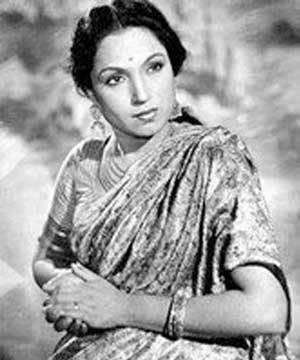
Lalita Pawar was a prolific Indian actress, who later became famous as a character actress, appearing in over 700 films in Hindi, Marathi and Gujarati cinema. She holds a Guinness world record of longest acting career spanning over 70 years. Pawar won the Filmfare Award for Best Supporting Actress for her performance in the comedy-drama Anari. She featured in hit films such as Netaji Palkar (1938), made by Bhalji Pendharkar, New Hana Pictures' Sant Damaji, Navyug Chitrapat's Amrit, written by VS Khandekar, and Chhaya Films' Gora Kumbhar. Her other memorable roles were in the films Anari (1959), Shri 420 and Mr & Mrs 55, and the role of Manthara, in Ramanand Sagar's television epic serial Ramayan.

Marathi Cinema, also known as Marathi film industry, is the segment of Indian cinema dedicated to the production of motion pictures in the Marathi language widely spoken in the state of Maharashtra. It is based in Mumbai. It is the oldest film industry of India and one of the leaders in filmmaking in the Indian film industry.
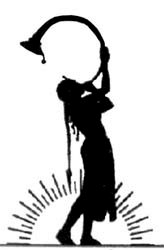
Prabhat Film Company was an Indian film production company and film studios founded in 1929 by the noted film director V.Shantaram and his friends.
Maya Macchindra, also titled alternatively as Alakh Niranjan, is the title of various films produced in different languages in India. The story is based on the life of Matsyendranath or Machindranath one of the eighty-four Mahasiddhas, tantric yogic master and the founder of nath lineage, and his famous disciple, baba Gorakhnath.
Suhana Safar is a 1970 Indian Hindi-language drama film directed by Vijay. The film stars Shashi Kapoor and Sharmila Tagore.
Vinayak Damodar Karnataki commonly referred to as Master Vinayak was an Indian actor and film director of the 1930s and 1940s.
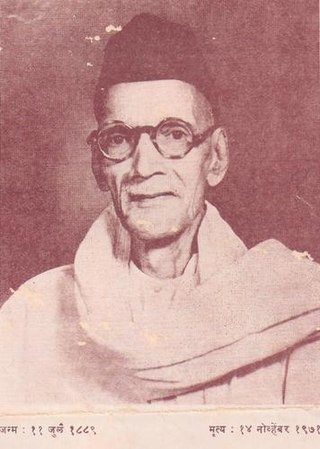
Narayan Hari Apte, popularly known as Nanasaheb Apte was a Marathi popular novelist, writer of advice books and editor from Maharashtra, India.

Kohraa (transl. Fog) is a 1964 Indian Hindi-language horror thriller film directed by Biren Nag, starring Waheeda Rehman, Biswajeet and Lalita Pawar. The film was adapted from Daphne du Maurier's 1938 novel Rebecca, which was previously adapted by Alfred Hitchcock as Rebecca (1940), though some supernatural elements were added to it, including a few from the film Psycho.

Sandhya Shantaram known mononyomusly as Sandhya is an Indian actress. She is best known for her appearances in various Hindi and Marathi films directed by her husband V. Shantaram, in 1950s-1960s, most notably Jhanak Jhanak Payal Baaje (1955), Do Aankhen Barah Haath (1958), Navrang (1959), Marathi film Pinjra (1972) and Amar Bhoopali (1951).
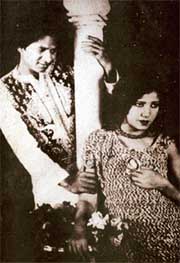
Master Vithal or Vithal (1906-1969) was an actor in Indian cinema, best known as the hero of India's first talkie Alam Ara (1931) and of Marathi and Hindi silent stunt films, which gave him the epithet as the Douglas Fairbanks of India.

Sinhagad is a 1933 Marathi historical fact film directed by V. Shantaram. The production company was Prabhat Film Company. The story was based on Hari Narayan Apte's literary classic novel "Gad Ala Pan Sinha Gela". Apte was a famous Marathi novelist of the early twentieth century. The story's screenplay and dialogue were written by Narayan Hari Apte. The cinematographers were V. Avadhoot and Keshavrao Dhaiber. The cast included Master Vinayak, Baburao Pendharkar, Keshavrao Dhaiber, Leela Chandragiri, Shinde, Prabhavati, Budasaheb and Shankarrao Bhosle.
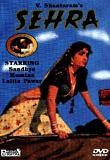
Sehra (Desert) is a 1963 Hindi romantic family drama film directed by V. Shantaram, who also wrote the screenplay. The story and dialogue writer was Shams Lucknowi. Made by Shantaram Productions, it had music composed by Ramlal with lyrics by Hasrat Jaipuri. The actress Mumtaz played a small character role in this film and also in Shantaram's earlier Stree (1961). The film starred Sandhya, Prashant, Mumtaz, Lalita Pawar, Manmohan Krishan, Ulhas, Babloo, M. Rajan and Baburao Pendharkar.
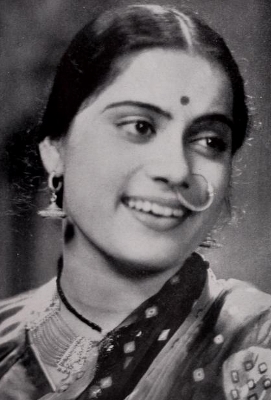
Shanta Apte (1916–1964) was an Indian actress-singer who worked in Marathi and Hindi cinema. Renowned for her roles in films like Duniya Na Mane/Kunku (1937) and Amar Jyoti (1936) under the Prabhat Films banner, she was active in Indian cinema from 1932 to 1958. Apte's impact on Marathi cinema "paralleled" that of Kanan Devi in Bengali cinema. Along with Kanan Devi, Apte is cited as one of the "great singing stars" from before the playback singing era. Apte began her career in films playing the role of a young Radha in the Marathi film Shyamsunder (1932). She joined Prabhat Films acting in her first Hindi language film Amrit Manthan in (1934).
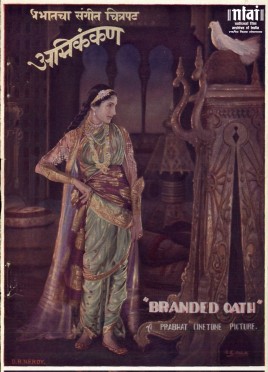
Agnikankan: Branded Oath also called The Branded Oath, is a 1932 Marathi adventure film directed by V. Shantaram. The film was a Prabhat Film Company production and was a bilingual, called Jalti Nishani in Hindi. The cinematography was done by Keshavrao Dhaiber and Art direction by S. Fatehlal. The sound direction was by Vishnupant Govind Damle and the music and lyrics were by Govindrao Tembe. Dialogues for the movie are written by Govindrao Tembe. The character artist Gajanan Jagirdar began his career in films by acting the role of a seventy-five-year-old man at the age of twenty-five. The cast included Shankarrao Bhosle, Kamala Devi, Master Vinayak, Baburao Pendharkar, Nimbalkar and Jagirdar.
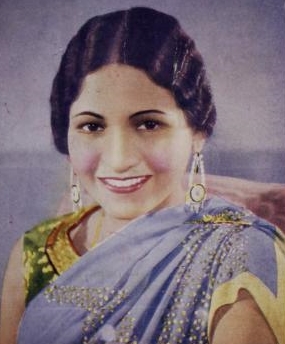
Hansa Wadkar (1923–1971) was a Marathi and Hindi film and stage actress of Indian cinema. She started her acting career at the age of thirteen years, as a heroine in the bilingual film Vijaychi Lagne (1936). Wadkar went on to make a name for herself working in the reputable film companies like Bombay Talkies, Prabhat Film Company and National Studios. Her career defining role was in Vishnupant Damle's Sant Sakhu (1941) where she enacted the role of the female saint Sakhu. Her other memorable roles were in the Tamasha genre films like Lokshahir Ram Joshi (1947), termed as the "Classic Marathi Tamasha musical". Sangtye Aika (1959) was another of Marathi cinema's "best known Tamasha film" along with Ram Joshi. She thus acted in two of Marathi cinema's biggest hits Lokshahir Ramjoshi and Sangtye Aika. The title "Sangtye Aika" was used by Wadkar for her autobiography compiled in 1971. The autobiography was initially serialised in the Marathi magazine Manoos helped by journalist Arun Sadhu.

Baburao Pendharkar, was an Indian actor, director, film producer and writer.

Bhaurao Datar was an Indian silent film actor, popularly known for his role as the 17th century Maratha king Shivaji.
Dinkar Shivram Salvi (1904–1980), popularly known as Dada Salvi was an Indian actor who worked in Marathi and Hindi films.














